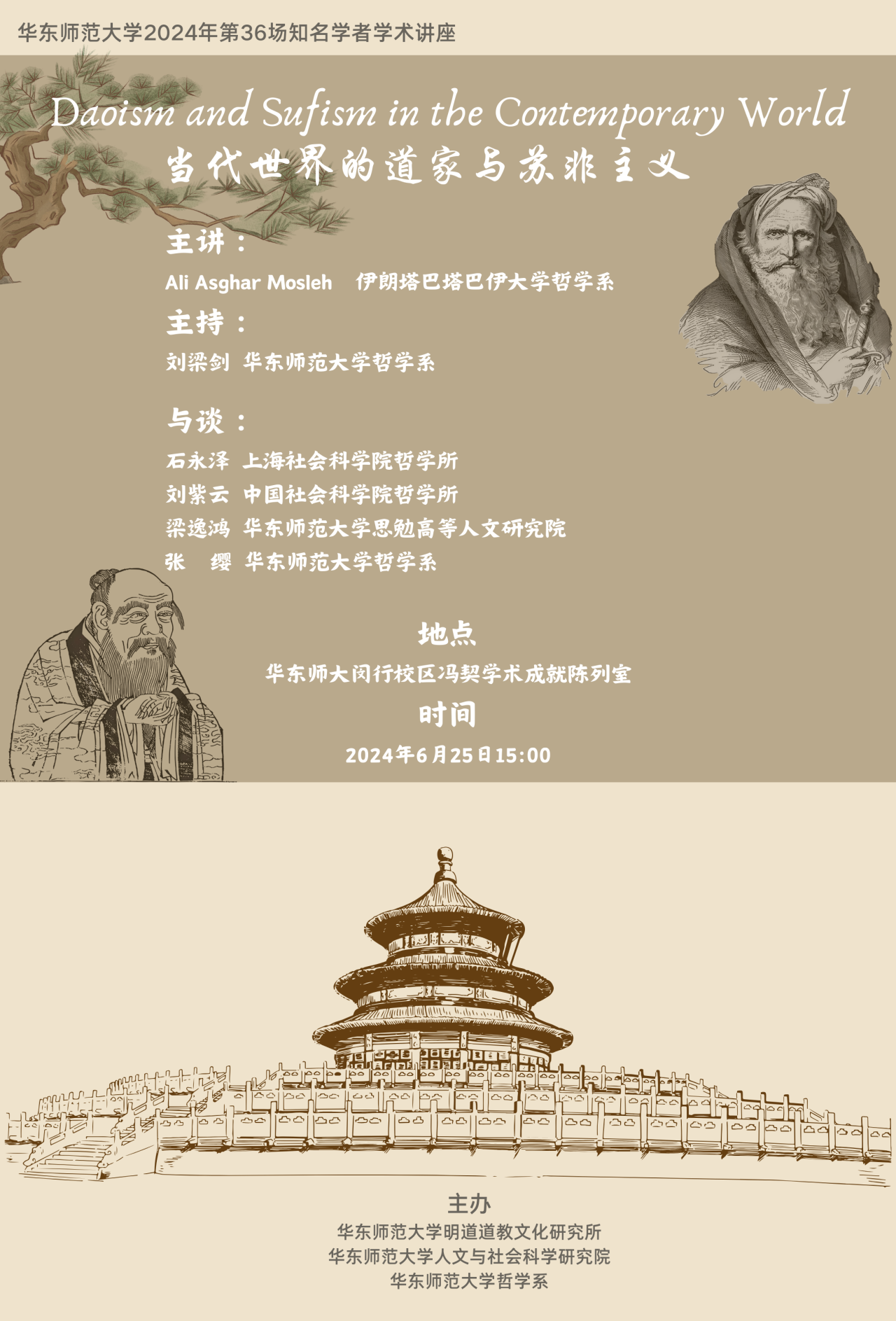
Daoism and Sufism in the Contemporary World
当代世界的道家与苏非主义
讲座信息
讲座题目
Daoism and Sufism in the Contemporary World
当代世界的道家与苏非主义
时间
2024年6月25日15:00
地点
华东师大闵行校区冯契学术成就陈列室
主讲人
Ali Asghar Mosleh
伊朗塔巴塔巴伊大学哲学系
主持人
刘梁剑
华东师范大学哲学系
与谈人
石永泽
上海社会科学院哲学所
刘紫云
中国社会科学院哲学所
梁逸鸿
华东师范大学思勉高等人文研究院
张缨
华东师范大学哲学系
主办
华东师范大明道道教文化研究所
华东师范大学人文与社会科学研究院
华东师范大学哲学系

主讲人简介
Ali Asghar Mosleh is an Iranian philosopher and professor of philosophy at Allameh Tabataba'i University. He is also a fellow of the Alexander von Humboldt Foundation (Germany), a visiting professor at Humboldt University in Berlin and Bonn University. He has presented lectures at more than thirty conferences in different countries. He is known for his expertise on philosophy of culture. Mosleh holds the presidency of The Iranian Society of Intercultural Philosophy (ISIPH) and Research Institute for Contemporary Culture at Institute for Humanities and Cultural Studies. He was the Dean of ATU's Faculty of Persian Literature and Foreign Languages (PLFL), and Acting-Dean of ATU's Faculty of Theology and Islamic Knowledge (2015-2017). He is associate member of the Iranian Academy of Science (2023). His works include Convergence and Divergence: An Intercultural and Interreligious Dialogue (2021), Truth and power(Vol. 1) (2020), The Other: A Research on Intercultural Thought and the Ethics of Dialogue (2018), etc.
内容简介
Daoism and Sufism are spiritual traditions formed in pre-modern cultures, yet they can be considered treasures and assets for contemporary man. Traditions such as these should not only be viewed in the light of the past and what happened in the past. In order to rethink contemporary issues, traditions can be viewed as the spiritual assets of nations. It is evident from historical experience that nations cannot achieve a balanced and orderly future without taking their past into account. Daoism, Sufism, Buddhism, and Hinduism are the most significant spiritual traditions of the East, which have nurtured the souls of the nations of the East for centuries. Further, these traditions have provided concrete examples of coexistence, mutual understanding, and empathic dialogue that are relevant to the actual lives of people. Considering the need for dialogue, but also polylogue, companionship, and participation in today's society, we may be able to reread these traditions and their models and be inspired by them. Through its great culture, along with its greatness and glory in civilization, China can reread and present the pattern of coexistence of spiritual traditions formed in its history. Traditions such as these provide the purest and deepest understanding of truth, the world and man.

 学校主页
学校主页 校内链接
校内链接 校外链接
校外链接 校内邮箱
校内邮箱




